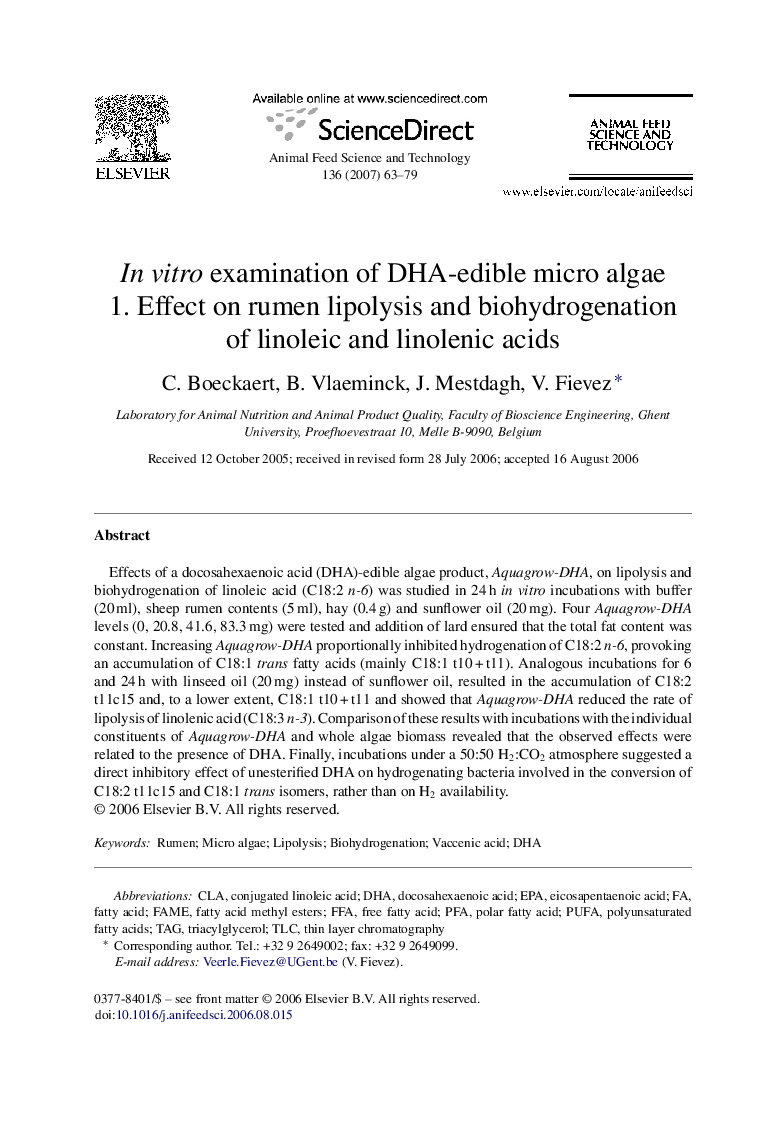| Article ID | Journal | Published Year | Pages | File Type |
|---|---|---|---|---|
| 2421063 | Animal Feed Science and Technology | 2007 | 17 Pages |
Effects of a docosahexaenoic acid (DHA)-edible algae product, Aquagrow-DHA, on lipolysis and biohydrogenation of linoleic acid (C18:2 n-6) was studied in 24 h in vitro incubations with buffer (20 ml), sheep rumen contents (5 ml), hay (0.4 g) and sunflower oil (20 mg). Four Aquagrow-DHA levels (0, 20.8, 41.6, 83.3 mg) were tested and addition of lard ensured that the total fat content was constant. Increasing Aquagrow-DHA proportionally inhibited hydrogenation of C18:2 n-6, provoking an accumulation of C18:1 trans fatty acids (mainly C18:1 t10 + t11). Analogous incubations for 6 and 24 h with linseed oil (20 mg) instead of sunflower oil, resulted in the accumulation of C18:2 t11c15 and, to a lower extent, C18:1 t10 + t11 and showed that Aquagrow-DHA reduced the rate of lipolysis of linolenic acid (C18:3 n-3). Comparison of these results with incubations with the individual constituents of Aquagrow-DHA and whole algae biomass revealed that the observed effects were related to the presence of DHA. Finally, incubations under a 50:50 H2:CO2 atmosphere suggested a direct inhibitory effect of unesterified DHA on hydrogenating bacteria involved in the conversion of C18:2 t11c15 and C18:1 trans isomers, rather than on H2 availability.
